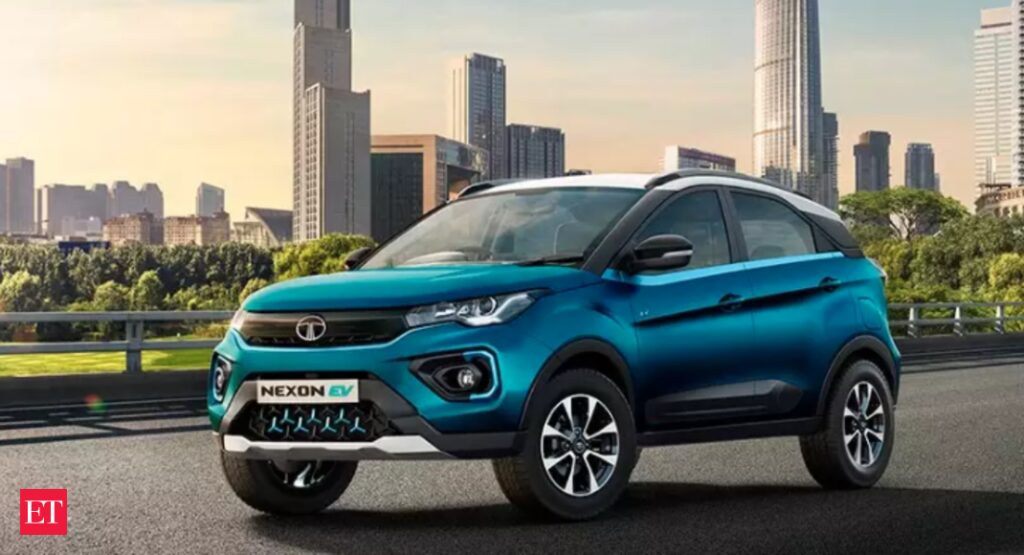Soaring fuel prices are helping accelerate the shift towards electrification, Tata Motors, India’s largest electric vehicle maker, has started witnessing sales of electric vehicles matching its diesel variant in recent months. From a share of 0.2% of its total sales, has already seen the share of electric vehicles increase to 3% in June-July and given the strong booking traction, Tata Motors expects the 5% of its total sales to come from EVs.
In markets where both diesel and electric variants are on offer, sales for the Nexon EV were already getting comparable to that of the diesel variant. In fact, in Maharashtra and Gujarat, sales of the Nexon EV have already overtaken that of diesel-powered Nexon,said P B Balaji, Group CFO, Tata Motors.
“With the rise in fuel prices, there is a significant shift towards electric and CNG vehicles. As for electric vehicles, there is a significant benefit on the total cost of ownership and it is moving quite rapidly in favor of EVs versus other fuels with the state and central governments. The increased traction is quite clearly seen in our order book position,” added Balaji.
Tata Motors sold about 1750 Nexon EVs in April to June quarter and it expects the momentum to sustain in the coming months with increasing density of charging stations across the country.
The company has already worked with Tata Power in setting up an ecosystem of 400 charging points across the country. The company has already committed to 10 all new electric vehicles by 2025.
The Tata Nexon EV is within 20% of the price range of the Nexon diesel. In the states of Maharashtra, Gujarat and Delhi, the difference gets narrower as the state governments extend subsidies to buyers of EVs. At the same time, the gap in operational cost is widening due to rising petrol and diesel prices.
With prices of petrol, and in some states diesel too, breaching Rs 100 per litre, there is a stronger case for shifting to EVs as their operating cost is significantly lower. The running cost of petrol and diesel cars is about Rs 4-7 per kilometre in Delhi, compared to Rs 1.6-1.7 for CNG cars and Rs 1.47 for electric cars, as per industry estimates
There is already a spurt in demand for personal EVs. According to Tata Motors, bookings for Nexon EV since states started unlocking after the second wave of Covid-19 have been rising almost two times faster than those for petrol or diesel vehicles.

